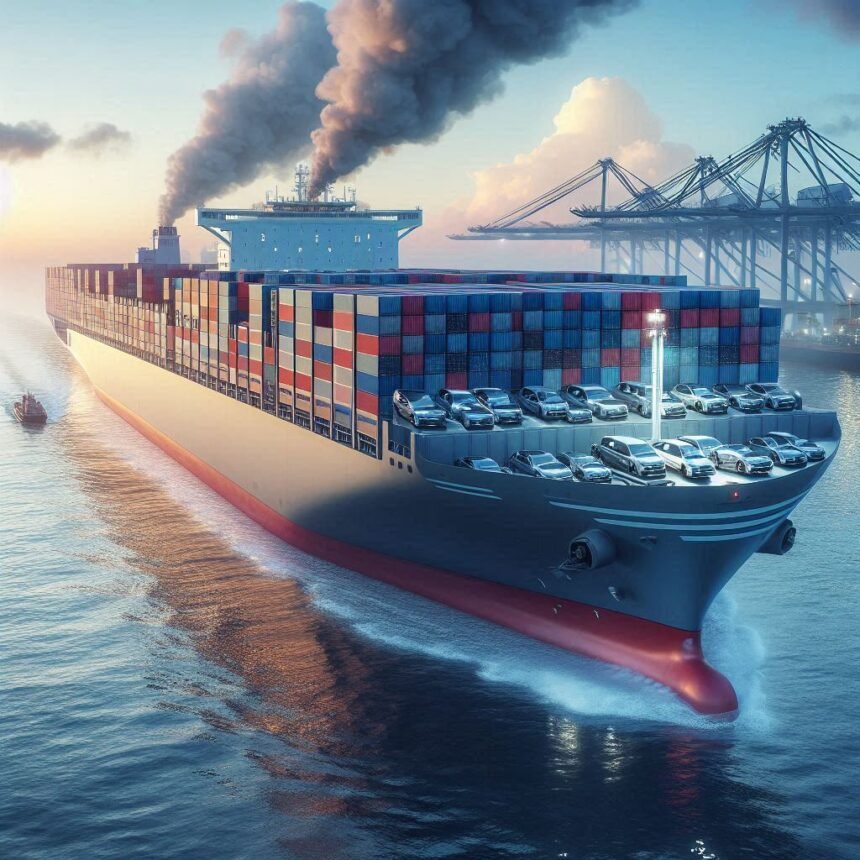Types of Marine Cargo Insurance Policies for Vehicles
When it comes to shipping vehicles, understanding the various types of marine cargo insurance policies is crucial. These policies provide different levels of coverage, ensuring that shippers can select the most appropriate option for their specific needs. The primary types of policies include ‘All Risk’ and ‘Named Perils’ insurance, each offering distinct advantages and coverage scopes.
‘All Risk’ policies are comprehensive, covering a wide array of potential damages and losses that can occur during transit. This type of marine cargo insurance typically includes protection against theft, accidents, weather-related damages, and other unforeseen events. For example, if a vehicle is damaged due to a storm while being shipped, an ‘All Risk’ policy would generally cover the repair costs. However, it is important to note that ‘All Risk’ does not cover every conceivable risk, and certain exclusions may apply, such as damages due to war or strikes.
In contrast, ‘Named Perils‘ policies offer coverage for specific risks that are explicitly listed in the policy. This type of marine cargo insurance might cover perils such as fire, collision, or sinking during the vehicle’s transit. While ‘Named Perils’ policies can be less expensive than ‘All Risk’ policies, they also provide narrower coverage. For instance, if a vehicle is damaged by a peril not listed in the policy, the shipper would have to bear the cost.
Additionally, vehicle shippers can consider ‘Open Cover’ and ‘Specific Voyage’ policies. ‘Open Cover’ insurance is ideal for businesses that regularly ship vehicles, as it provides continuous coverage for multiple shipments over a specified period. This type of marine cargo insurance can be more cost-effective and convenient for frequent shippers, as it eliminates the need to arrange separate policies for each shipment.
On the other hand, ‘Specific Voyage’ insurance is tailored for a single shipment, providing coverage from the point of origin to the destination. This policy is well-suited for one-time or infrequent shipments, offering protection against risks encountered during a particular voyage. For instance, a car dealer shipping a luxury vehicle to an overseas buyer may opt for ‘Specific Voyage’ insurance to ensure comprehensive protection during that journey.
Each type of marine cargo insurance policy for vehicles is designed to address different shipping scenarios and risk factors. By carefully evaluating their shipping needs and understanding the coverage options available, vehicle shippers can select the most appropriate insurance policy to safeguard their valuable cargo.
Key Considerations When Choosing Marine Cargo Insurance for Vehicles
When selecting marine cargo insurance for vehicles, several critical factors must be evaluated to ensure comprehensive coverage and protection. The first consideration is the value of the vehicle being shipped. Accurate valuation is essential because it directly influences the coverage amount and premium costs. Underestimating the vehicle’s value could lead to insufficient coverage, while overestimating it may result in unnecessarily high premiums.
Understanding the terms and conditions of the marine cargo insurance policy is equally important. These terms define the scope of coverage, including what is and isn’t covered. It is crucial to scrutinize details such as coverage limits, deductibles, and exclusions. Coverage limits indicate the maximum amount the insurer will pay in the event of a loss, while deductibles represent the amount the policyholder must pay out of pocket before insurance coverage kicks in. Exclusions outline specific scenarios or damages not covered by the policy, such as wear and tear or damage due to improper packaging.
Selecting a reputable insurance provider is another vital consideration. A well-established provider with a strong track record ensures reliability and efficient claims processing. Researching the provider’s reputation, financial stability, and customer reviews can offer insights into their reliability. Additionally, it is beneficial to choose an insurer with experience in marine cargo insurance, as they will be well-versed in the unique challenges and requirements of insuring vehicles in transit.
Comparing different insurance options is also advisable. Shippers should obtain quotes from multiple providers and compare them based on coverage details and costs. This comparison should include an assessment of the coverage limits, deductibles, exclusions, and any additional benefits or services offered by the insurer. Ensuring that the chosen policy provides comprehensive coverage for potential risks encountered during transit is imperative.
In conclusion, choosing the right marine cargo insurance for vehicles involves a thorough evaluation of the vehicle’s value, policy terms and conditions, and the reputation of the insurance provider. By carefully assessing and comparing different insurance options, shippers can secure the most suitable and comprehensive coverage for their vehicles during transit.
Claims Process and Handling for Marine Cargo Insurance
When it comes to marine cargo insurance, understanding the claims process is crucial for ensuring that any potential losses are adequately covered. The first step in filing a claim involves promptly notifying your insurer as soon as the loss or damage is discovered. This initial notification sets the wheels in motion for the entire claims process.
Documentation is a cornerstone of a successful claim. Essential documents include the original insurance policy, the bill of lading, a commercial invoice, and a detailed statement of the loss or damage incurred. It is also advisable to provide photographic evidence and any inspection reports that can substantiate your claim. The more comprehensive your documentation, the smoother your claims process will be.
Once you have submitted your claim, the insurer will typically acknowledge receipt and begin an investigation to verify the circumstances surrounding the loss. The timeline for this can vary, but insurers generally aim to process claims as efficiently as possible, often within 30 to 60 days. However, complex cases may require additional time.
Disputes or denied claims can be particularly challenging. If you find yourself in such a situation, your first step should be to review the denial letter in detail to understand the insurer’s reasoning. Engaging with your insurance broker can provide valuable assistance; brokers can often mediate and help clarify any misunderstandings between you and the insurer. If an amicable resolution cannot be reached, legal assistance may be necessary to navigate the complexities of marine cargo insurance disputes.
To ensure a smooth and efficient claims process, it is imperative to maintain accurate records and communicate effectively with your insurer. Being proactive and attentive to detail will significantly enhance your chances of a successful claim. Leveraging the expertise of insurance brokers and seeking legal advice when needed can further streamline the process, safeguarding your interests and ensuring that your marine cargo insurance provides the protection you need.








